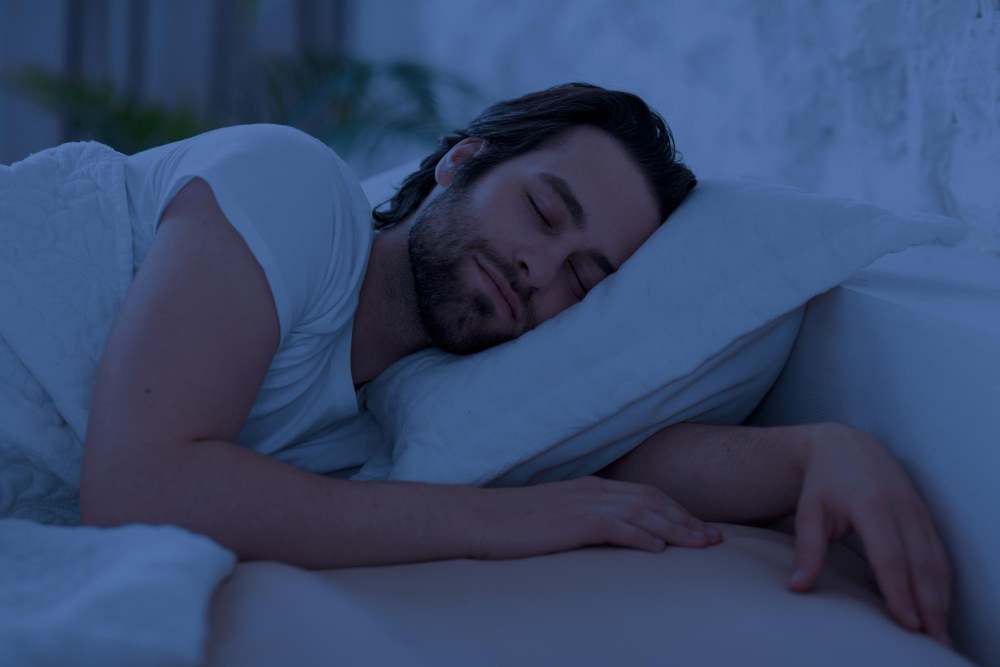Introduction:
Nightfall, also known as nocturnal emissions or wet dreams, has long been a topic of curiosity and concern. Many individuals have wondered whether this natural occurrence is beneficial or detrimental to their health. In this article, we will delve into the subject, exploring the effects of nightfall on both physical and mental well-being. By unraveling the truth behind this phenomenon, we hope to provide you with a clearer understanding of its impact on your health.

The Nature of Nightfall:
Nightfall is a normal physiological process that primarily occurs during sleep, particularly during the rapid eye movement (REM) stage. It involves the involuntary release of semen in males or vaginal lubrication in females. While it is commonly associated with sexual dreams, it can also happen without any accompanying dream or sexual stimulation.
The Health Benefits of Nightfall:
Contrary to popular belief, nightfall can actually have positive effects on your health. Firstly, it acts as a natural mechanism to remove older sperm and seminal fluids from the body, making way for fresher, healthier semen. This process helps maintain the overall quality of reproductive cells. Additionally, nightfall can help alleviate sexual tension and reduce the risk of prostate-related issues in men.
Furthermore, nightfall promotes hormonal balance. During ejaculation, the body releases certain hormones such as oxytocin, prolactin, and endorphins, which can induce relaxation and improve sleep quality. These hormones also contribute to reducing stress and enhancing mood, thereby positively impacting mental well-being.
Addressing Concerns and Debunking Myths:
Nightfall is often accompanied by various concerns and misconceptions. One common myth is that excessive nightfall can lead to weakness or fatigue. However, there is no scientific evidence to support this claim. Nightfall is a natural and healthy process that does not cause any physical harm or weakness.
Moreover, it is important to recognize that nightfall is a normal occurrence and differs from compulsive behaviors such as excessive masturbation or pornography addiction. While these behaviors may have negative consequences, nightfall itself is not the cause of any harm.
Maintaining a Healthy Balance:
While nightfall is generally considered normal and healthy, excessive frequency or persistent issues may warrant attention. If nightfall becomes a source of distress or disrupts your daily life, it is advisable to consult a healthcare professional. They can provide guidance and evaluate any underlying factors that may contribute to the frequency or intensity of nightfall.
Conclusion:
n conclusion, nightfall is a natural physiological process that occurs during sleep. Contrary to popular misconceptions, it is generally considered beneficial for your health. Nightfall helps maintain reproductive health, promotes hormonal balance, and contributes to overall well-being. Understanding the truth behind nightfall allows us to appreciate its natural role and alleviate any unwarranted concerns. Embrace this normal process, and if you have any concerns, seek professional advice for personalized guidance. Remember, a healthy approach to nightfall leads to a healthier you.
Frequently Asked Questions (FAQs):
Q1: What is nightfall, and why does it occur?
A: Nightfall, also known as nocturnal emission or wet dream, is the involuntary release of semen in males or vaginal lubrication in females during sleep. It usually occurs during the rapid eye movement (REM) stage of sleep. Nightfall is a natural physiological process that helps maintain reproductive health.
Q2: Is nightfall good or bad for my health?
A: Nightfall is generally considered normal and healthy. It plays a beneficial role in maintaining reproductive health by eliminating older sperm and seminal fluids. It also promotes hormonal balance and can contribute to relaxation, improved sleep quality, and enhanced mood.
Q3: Does nightfall cause weakness or fatigue?
A: No, nightfall does not cause weakness or fatigue. This is a common myth. Nightfall is a natural process that does not have any adverse physical effects. It is important to distinguish nightfall from compulsive behaviors or excessive masturbation, which may have different consequences.
Q4: How frequently should nightfall occur?
A: The frequency of nightfall can vary from person to person. It is considered normal to experience nightfall occasionally. However, if the frequency becomes excessive or causes distress, it may be beneficial to consult a healthcare professional for guidance and evaluation.
Q5: Are there any ways to prevent nightfall?
A: Nightfall cannot be entirely prevented, as it is a natural process. However, maintaining a healthy lifestyle, managing stress, and avoiding excessive sexual stimulation before sleep may help regulate its frequency. It is important to remember that nightfall is a normal occurrence and not a cause for alarm.
Q6: Should I be concerned if I don’t experience nightfall?
A: Not experiencing nightfall does not necessarily indicate a problem. The frequency of nightfall can vary among individuals, and some may have it less frequently or not at all. As long as you have a healthy reproductive system and do not experience any other issues, the absence of nightfall is typically not a cause for concern.
Q7: Can nightfall be a symptom of an underlying medical condition?
A: Nightfall is usually a natural and harmless process. However, if you have persistent concerns or if nightfall is accompanied by other symptoms such as pain, discomfort, or abnormal discharge, it is advisable to consult a healthcare professional. They can evaluate your specific situation and determine if further investigation is necessary.
Q8: Does nightfall only occur during sexual dreams?
A: Nightfall is commonly associated with sexual dreams, but it can also happen without any accompanying dream or sexual stimulation. The occurrence of nightfall depends on various factors, including hormonal changes and individual differences.
Q9: Are the effects of nightfall different for males and females?
A: The basic nature of nightfall is similar for males and females, involving the release of reproductive fluids during sleep. However, the physiological processes and experiences may differ. For males, nightfall involves the release of semen, while females may experience vaginal lubrication. The overall effects on health and well-being are generally similar for both genders.
Remember, if you have any specific concerns or questions about nightfall and your health, it is always advisable to consult a healthcare professional for personalized advice and guidance or call us at 90534 90543 for help.
Other related articles:
A Comprehensive Guide to PCOS: Causes, Symptoms, Treatment, and Management.
The Ultimate Guide to Women’s Health and Yoga for PCOS, Hygiene & Well-Being



